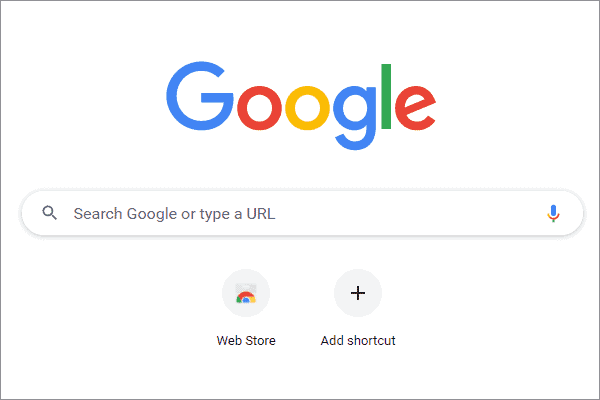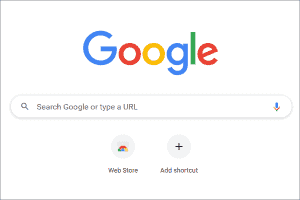
Websites can access through various means, including social media, another website, copying the URL into your browser’s address bar, or utilizing search engines. Two of the most frequent ways of loading a web page in a computer browser are using Google or typing a URL into the address bar. But, when it comes to loading a specific page, which way is the most efficient? To visit QUORA, type www.quora.com (or quora.com) into your browser’s address bar. Should you conduct a Google search for “Quora” and then navigate to the website from the results page? No single method works for everyone, but one is always better based on the variables and scenarios.
The Applications of Search Engines
If you are not aware about the exact location of the website you want to visit, you can use Google or type in the URL. Moreover, if you can’t remember the same phrasing or phrases that make up the URL, the quickest thing to search for is using terms you recall. If you know the precise URL of the site you want to access, using a web index or your program’s address bar is not only inconvenient. But it also wastes transmission capacity/web/information plan because you’ll have to first stack the web search tool return page before proceeding to the site. A search engine is a fantastic alternative if you know the website’s exact address but only need a specific piece of information. To be more precise, I used Google’s site search (site: search) function.
Using the Address Bar to Enter a URL
After the site address, URL parameters appear in the program’s location bar. They all start with a question mark and combine in a variety of ways. Additionally, whether you search for a website using Search Google or Type a URL, the site may not appear on the search results page if the search engine has not indexed it. If you know the URL address of a website, type it into the address bar. The HTTP:// and www. prefixes are optional. Some websites even use short, lightweight URLs that redirect to the main URL, allowing users to visit it without typing the full address. For example, in your browser URL bar, type quora.com instead of www.quora.com.
Parameters in Search Google or type a URL
Enter a search term in Google or type a phrase in the box below. After the site address, URL parameters appear in the program’s location bar. They all start with a question mark and can be linked in several different ways. Each URL parameter contains a key-value pair. The ampersand has used to divide two or more variables. Despite URL parameters generate automatically, you can customize them using Google Search Console settings. They can help with a wide range of technological challenges, such as:
User identification, the convenience of working sessions, and the completion of your online purchasing cart are all things that you should consider.
- Landing page conversions are tracking.
- Look through the entire website.
- Filtering items in online businesses is possible.
- When sorting items, price, brand, and popularity are all aspects to consider.
- Pagination in a directory with multi-page material.
- Different website versions are presented depending on the user’s language or country.
In terms of website optimization, the GET limits can use in a variety of ways. They make it much easier to search Google or type in a URL while working with third-party resources. This is useful when looking for websites to expand your search presence, understanding search inquiries, or researching your competitors’ media strategy. Understanding how URL parameters are created is critical to the setting of your website. It improves indexing, reduces duplicate pages, and reduces crawling costs. Furthermore, visitors are more likely to favour a short URL with a clear structure.

Parameters for Search Google or type a URL
The Google search parameters are a set of logical and concise instructions. They are simple to remember if you use them daily (much like a multiplication table). If you are faced with an unexpected assignment or are dubious about the relevance of your search query, the tables below will come to your rescue. To achieve the most accurate results, combine multiple GET statements in a single query.
What Issues Can Search Parameters Assist You With?
Over time, websites can accumulate a large amount of extra data, and you may forget what you submitted a few months or a year ago. Search Google or your website’s library Type a URL, like the garbage in your closet, has to be cleaned now and then. Some records will become obsolete over time, while others should not be made available to the public. They should either be removed from the index or removed entirely.
Links to Other Websites
You can find websites for link building using the same way. First, identify other websites that operate in the same niche as you and use their blogs to publish topical content. Then check for your mates on the list. To do so, assess the total number of indexed pages using site:domain.com, and then select site:domain.com SEO from those related to our topic.
Creating a database of errors
There’s a danger Google will index parts of your website’s pages incorrectly, such as bypassing important material or technical indexing sites. To double-check, go to the operator’s website. All non-working, specialized, or duplicate pages should be eliminated from indexing, as this is reasonable.
Look for websites that publish paid or guest articles.
Want to add more text but don’t know where to begin? Many websites are interested in employing guest content to keep their information up to date. Choose your area of interest and frame your request correctly, such as “become a contributor,” “contribute to,” “guest articles,” and “become an author.”
Internal connectivity has been simplified.
Search parameters (Search Google or type a URL) can also help with internal linking. It would be fantastic to integrate links to previously published content in a newly released piece of content. Going through all of the blog posts to find the most relevant ones takes far too much time. Let’s make this a little more straightforward. Customize the search on your blog to exclude the publication you’re referring to. Fill up the blanks with your most pressing concerns.
Look for similar information.
Another e-commerce site pet complaint is repeated product descriptions. Non-unique content tarnishes the reputation of web resources. Using search operators, you can see if the descriptions on your and your competitors’ websites are the same. Bloggers whose content has routinely been duplicated by illegitimate websites may appreciate this function.
Which one should I pick? Do you want to use Search Google or type a URL?
It is totally up to you to select what you require, such as questions and answers that can only find on a specific website. It is up to you to make a choice. Type a URL to get where you want to go. You can type your query into the search field if you don’t know where to look. It’s easy to find answers to your questions if you type your question or directly go to a specific website by typing a URL into the search field.
